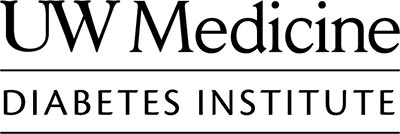Welcome to the den Hartigh Laboratory
Dedicated to understanding the impact of fatty acids and inflammatory mediators on adipocyte biology during the development of obesity and subsequent weight loss.
Research:
The prevalence of obesity and associated diseases such as type 2 diabetes is rapidly reaching epidemic proportions. Representing major cellular constituents of adipose tissue, adipocytes and macrophages are regarded as prominent players in the metabolic, hormonal, and homeostatic regulation of adiposity. Despite the fundamental role adipose tissue plays in whole body metabolism, nutritive mechanisms that contribute to its maintenance in the context of obesity remain poorly understood. Dr. den Hartigh’s research focuses on the effects of nutrient excess on cellular metabolism, with particular attention given to the effects of fatty acids on cell types associated with the development of obesity such as adipocytes and monocytes/macrophages.
Inflammation of visceral adipose tissue is thought to be associated with insulin resistance, systemic inflammation and atherosclerosis. Furthermore, adipose tissue inflammation is characterized by immune cell accumulation, with macrophages as the predominant infiltrating cell type. We are particularly interested in the role of excess nutrients derived from glucose, as well as long- and short-chain fatty acids on adipose tissue inflammation and metabolism. We use in vitro systems and mouse models to study how obesity derived by nutrient excess leads to adipose tissue and systemic inflammation. We are also interested in understanding how variety of obesity-associated adipokines, including serum amyloid A and fibroblast growth factor 21, modulate the development of obesity.
A prominent role for gut bacteria in mediating weight loss is now emerging. The composition of our gut microbiota can be readily altered by particular food products, such as dietary fats, sugar, and fiber. A recent area of focus in the den Hartigh laboratory is to study how particular dietary nutrients may impact gut microbiota to facilitate weight loss. An integrative approach to study the gut-brain-adipose axis in rodent models of obesity and weight loss is coupled with the study of adipocytes in vitro to identify novel dietary nutrients, including pre- and pro-biotics that modulate the gut microbiota in a manner that benefits host metabolism.
News:
- UWMDI Researcher Laura den Hartigh, PhD, has received an award for $2,143,707 from the USDA National Institute of Food and Agriculture for her R01 project.
- Dr. Laura den Hartigh, research assistant professor (Metabolism, Endocrinology and Nutrition), has received a 5-year, $2,143,707 award from the United States Department of Agriculture – National Institute on Food Safety (USDA-NIFA), for her R01 project “10,12 CLA-mediated weight loss and the gut microbiota”. This project is an historic partnership between the NIH and the USDA-NIFA to support research on molecular signatures of dietary intake and exposure.
- Oral presentation at the University of Washington’s inaugural Microbiome Symposium, October 2nd, 2018
- Laura den Hartigh receives a University of Michigan MRC2 Pilot and Feasibility Award
- Laura den Hartigh receives a University of Washington Diabetes Research Center Pilot and Feasibility Award
- DOCE Researcher, Laura den Hartigh, Receives NIH K01 Award
Recent Publications:
Chait A, Wang S, Goodspeed L, Gomes D, Turk KE, Wietecha T, Tang J, Storey C, O’Brien KD, Rubinow KB, Tang C, Vaisar T, Gharib SA, Lusis AJ, den Hartigh LJ. Sexually dimorphic relationships among serum amyloid A3, inflammation, and cholesterol metabolism modulate atherosclerosis in mice. Arterioscler Thromb Vasc Biol in press.
Gomes Kjerulf D, Wang S, Omer M, Pathak A, Subramanian S, Han CY, Tang C, den Hartigh LJ, Shao B, Chait A (2020). Glycation of HDL blunts its anti-inflammatory and cholesterol efflux capacities in vitro, but has no effect in poorly controlled type 1 diabetes subjects. J Diabetes Complications Dec; 34(12):107693.
Han CY, Kang I, Harten IA, Gene JA, Chan CK, Omer M, Alonge KM, den Hartigh LJ, Gomes D, Goodspeed L, Subramanian S, Wang S, Kim F, Birk DE, Wight TN, Chait A (2020). Proteoglycans in the control of adipose tissue inflammation in obesity. Cell Rep Jun 30;31(13):107818.
Chait A, den Hartigh LJ, Wang S, Goodspeed L, Babenko I, Altemeier WA, Vaisar T (2020). Presence of serum amyloid A3 in mouse plasma is dependent on the nature and extent of the inflammatory stimulus. Sci Rep June 25:10(1):10397.
Chait A, den Hartigh LJ (2020). Adipose tissue distribution, inflammation, and its metabolic consequences, including diabetes and cardiovascular disease. Front Cardiovasc Med. Feb 25;7:22. doi: 10.3389/fcvm.2020.00022.
Rubinow KB, den Hartigh LJ, Goodspeed L, Wang S, Oz OK (2020). Aromatase deficiency in hematopoietic cells improves glucose tolerance in male mice. PLoS ONE Jan 23;15(1):e0227830. doi: 10.1371/journal.pone.0227830
den Hartigh, LJ (2019). Conjugated linoleic acid effects on cancer, obesity, and atherosclerosis: a review of pre-clinical and human trials with current perspectives. Nutrients 2019 Feb 11;11(2).
Kanter JE, Goodspeed L, Wang S, Kramer F, Wietecha T, Gomes-Kjerulf D, Subramanian S, O’Brien KD, den Hartigh LJ (2018, in press). 10,12 conjugated linoleic acid-driven weight loss is protective against atherosclerosis in mice and is associated with alternative macrophage enrichment in perivascular adipose tissue. Nutrients 2018, 10(10), 1416.
den Hartigh LJ, Goodspeed L, Wang SA, Kenerson HL, Omer M, O’Brien KD, Ladiges W, Yeung R, Subramanian S (2018). Chronic oral rapamycin decreases adiposity, hepatic triglycerides, and insulin resistance in male mice fed a diet high in sucrose and saturated fat. Exp Physiol. Aug 16. doi: 10.1113/EP087207
den Hartigh LJ, Gao Z, Goodspeed L, Wang S, Das AK, Burant C, Chait A, Blaser MJ (2018). Obese mice losing weight due to 10,12 conjugated linoleic acid supplementation or food restriction harbor distinct gut microbiota. J Nutr. 2018 Apr 1;148(4):562-572.
Tannock LR, De Beer MC, Ji A, Shridas P, Noffsinger VP, den Hartigh L, Chait A, de Beer FC, Webb NR (2018). Serum Amyloid A3 is a High-Density Lipoprotein-associated Acute Phase Protein. J Lipid Res. 2018 Feb;59(2):339-347.
Wang S, Goodspeed L, Turk KE, Bouston B, den Hartigh LJ (2017). Rosiglitazone improves insulin resistance mediated by 10,12 conjugated linoleic acid in a male mouse model of metabolic syndrome. Endocrinology. Sep 1;158(9):2848-2859.
den Hartigh LJ, Wang S, Goodspeed G, Wietecha T, Houson B, Omer M, Ogimoto K, Subramanian S, Gowda GAN, O’Brien KD, Kaiyala KJ, Morton GJ, Chait A. Metabolically Distinct Weight Loss by 10,12 CLA and Caloric Restriction Highlight the Importance of Subcutaneous White Adipose Tissue for Glucose Homeostasis in Mice. PLoS One. Feb 28;12(2):e0172912. doi: 10.1371/journal.pone.0172912.
den Hartigh LJ, Omer M, Goodspeed L, Wang S, Wietecha T, O’Brien KD, Han CY. Adipocyte-specific deficiency of NADPH oxidase 4 delays the onset of insulin resistance and attenuates adipose tissue inflammation in obesity. Arterioscler Thromb Vasc Biol Mar;37(3):466-475.
Rubinow KB, Wang S, den Hartigh LJ, Subramanian S, Morton GJ, Buaas FW, Lamont D, Gray N, Braun RE, Page ST. Hematopoietic androgen receptor deficiency promotes visceral fat deposition in male mice without impairing glucose homeostasis. Andrology. 2015 Jun 20. doi: 10.1111/andr.12055.
Averill MM, Kim EJ, Goodspeed L, Wang S, Subramanian S, den Hartigh LJ, Tang C, Ding Y, Reardon CA, Getz GS, Chait A (2014). The Apolipoprotein-AI Mimetic Peptide L4F at a Modest Dose Does Not Attenuate Weight Gain, Inflammation, or Atherosclerosis in LDLR-Null Mice. PLoS One. 2014 Oct 6;9(10):e109252.
den Hartigh LJ, Wang S, Goodspeed L, Ding Y, Averill M, Subramanian S, Wietecha T, O’Brien KD, Chait A (2014). Deletion of Serum Amyloid A3 Improves High Fat High Sucrose Diet-Induced Adipose Tissue Inflammation and Hyperlipidemia in Female Mice. PLoS One. 2014 Sep 24;9(9):e108564.
den Hartigh LJ, Altman R, Norman JE, Rutledge JC. (2013) Postprandial VLDL lipolysis products increase monocyte adhesion and lipid droplet formation via activation of ERK2 and NFκB. Am J Physiol Heart Circ 2014 Jan 1;306(1):H109-20.
den Hartigh LJ, Han CY, Wang S, Omer M, Chait A (2013). 10E-12Z-conjugated linoleic acid impairs adipocyte triglyceride storage by enhancing fatty acid oxidation, lipolysis, and mitochondrial reactive oxygen species. J Lipid Res. 2013 54:(11) 2945.
Montes VN, Turner MS, Subramanian S, Ding Y, Hayden-Ledbetter M, Slater S, Goodspeed L, Wang S, Omer M, den Hartigh LJ, Averill MM, O’Brien KD, Ledbetter J, Chait A (2013). T cell activation inhibitors reduce CD8+ T cell and pro-inflammatory macrophage accumulation in adipose tissue of obese mice. PLoS ONE 2013 Jul 2;8(7):e67709.
Han CY, Umemoto T, Mitra P, Averill MM, Tang C, Goodspeed L, Omer M, Subramanian S, Wang S, den Hartigh LJ, Kim EJ, Kim J, O’Brien KD, Chait A. Apolipoprotein A-I and HDL have anti-inflammatory effects on adipocyte inflammation via cholesterol transporters; ATP-binding cassette (ABC) A-1, ABCG-1 and scavenger receptor B-1(SRB-1). Circ Res 2013 Mar 15.
den Hartigh LJ, Altman R, Hutchinson R, Petrlova J, Budamagunta MS, Tetali SD, Lagerstedt JO, Voss JC, Rutledge JC. Postprandial apoE isoform and conformational changes associated with VLDL lipolysis products modulate monocyte inflammation. PLoS ONE 2012;7(11):e50513.
Tablin F, den Hartigh LJ, Aung HH, Lame MW, Kleeman MJ, Ham W, Norris JW, Pombo M, Wilson DW. Seasonal influences on CAPs exposures: Differential responses in platelet activation, serum cytokines, and xenobiotic expression. Inhal Toxicol 2012 Jul;24(8):506-17.
Han CY, Umemoto T, Omer M, den Hartigh LJ, Chiba T, Leboeuf R, Buller CL, Sweet IR, Pennathur S, Abel ED, Chait A. NADPH oxidase-derived reactive oxygen species increases expression of monocyte chemotactic factor genes in cultured adipocytes. J Biol Chem 2012 Mar 23;287(13):10379-93.
den Hartigh LJ, Lame MW, Tablin F, Wilson DW. Endotoxin and polycyclic aromatic hydrocarbons in ambient fine particulate matter from Fresno, California initiate human monocyte inflammatory responses mediated by reactive oxygen species. Toxicology in Vitro 24 (2010) 1993–2002.
den Hartigh LJ, Connolly-Rohrbach JE, Fore S, Huser T, Rutledge JC. Fatty acids from VLDL lipolysis products induce lipid droplet accumulation in human monocytes. J Immunol. 2010 April 1; 184(7):3927-36.
Tetali SD, Budamagunta MS, Simion C, den Hartigh LJ, Kalai T, Hideg K, Hatters DM, Weisgraber KH, Voss JC, Rutledge JC. VLDL lipolysis products increase VLDL fluidity and convert apolipoprotein E4 into a more expanded conformation. J Lipid Res. 2010 Jun;51(6):1273-83.
Wang L, Gill R, Pederson TL, Higgins LJ, Newman JW, Rutledge JC. Triglyceride-rich lipoprotein lipolysis releases neutral and oxidized FFAs that induce endothelial inflammation. J Lipid Res. 2009 Feb;50(2):204-13.
Higgins LJ, Rutledge JC. Inflammation associated with the postprandial lipolysis of triglyceride-rich lipoproteins by lipoprotein lipase. Curr Atheroscler Rep. 2009 May;11(3):199-205.
Current and Recent Lab Members

Laura den Hartigh, PhD
Dr. den Hartigh received her Ph.D. in Molecular, Cellular, and Integrated Physiology from the University of California, Davis in 2008, with a Designated Emphasis in Biotechnology. She began her postdoctoral training in the laboratory of Dr. Dennis Wilson, D.V.M, Ph.D. at the University of California, Davis, and completed her training in the laboratory of Dr. Alan Chait, M.D. at the University of Washington. She was appointed to the faculty in 2013 as a Research Assistant Professor, was promoted to Research Associate Professor in 2020, and holds an adjunct appointment with Nutritional Sciences.
Dr. den Hartigh serves on the Editorial Board for the Endocrinology section of the journal Scientific Reports and the journal Nutrients. She frequently serves on study sections on Lipids Basic Science and Lipids and Thrombosis for the American Heart Association and on study sections on Obesity and Diabetes for the American Association for the Advancement of Science.

Shari Wang
Research Scientist

Leela Goodpseed
Research Scientist

Karolline May, PhD
Postdoctoral Fellow
Karolline May obtained her PhD in Medical Science from the University of Sao Paulo, School of Medicine, Brazil. Her PhD research focused on metabolic disorders, inflammation, type 2 diabetes and its complications elicited by advanced glycation end-products (AGEs). In 2021, Dr. May joined the den Hartigh Lab at the University of Washington Diabetes Institute as a postdoctoral fellow, where she proposes to elucidate the mechanisms by which metabolites produced by gut microbes influence obesity and subsequent weight loss in mouse models of metabolic disease.
Contact Us
UW Medicine Diabetes Institute
750 Republican Street, Box 358062
Seattle, WA 98109
Laura den Hartigh: (206) 543-8406
Laboratory: (206) 543-2264
Fax: (206) 543-3567
Laura den Hartigh: lauradh@u.washington.edu
To inquire about Postdoctoral and Graduate Student Openings click on: lauradh@uw.edu
